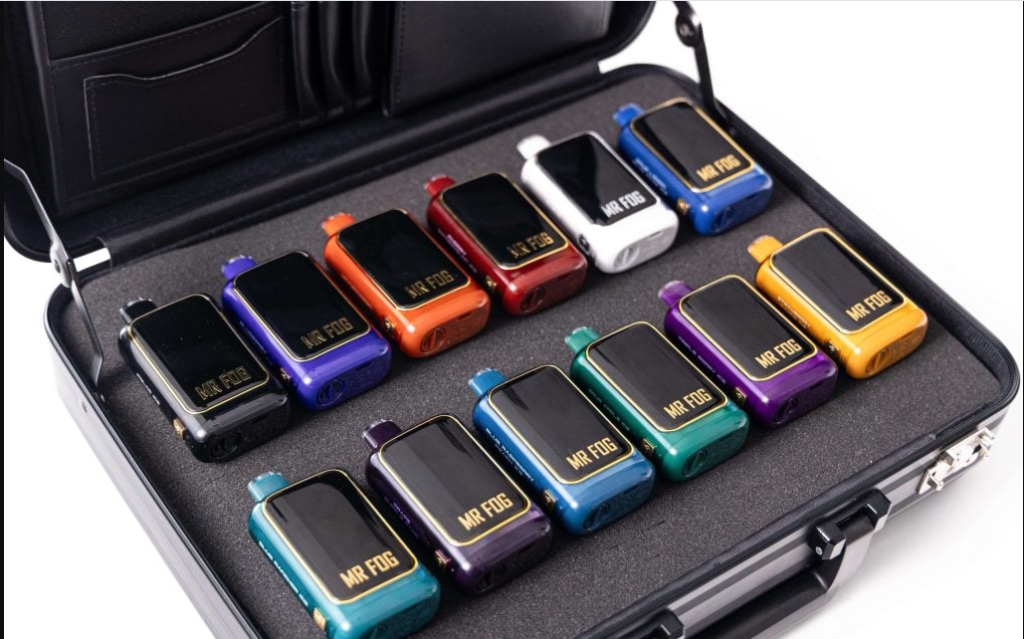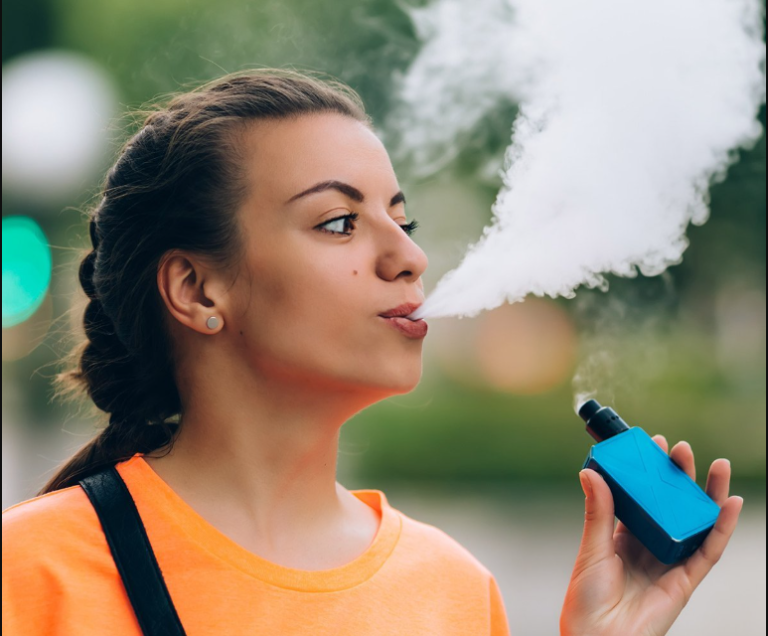Introduction: Why People Ask About Calories in a Vape
Many people who switch from smoking to vaping often wonder: “How many calories are in a vape?”
With weight gain and fitness being hot topics, it’s natural to ask if vaping adds calories to your diet. Unlike food or drinks, vapes don’t provide nutrition, but they do contain ingredients like vegetable glycerin (VG), propylene glycol (PG), flavorings, and sometimes nicotine — all of which may contribute tiny amounts of calories. In this article, we’ll explore whether vaping can impact your weight, how many calories are in vape juice, and what science says about vaping and metabolism.
Do Vapes Actually Have Calories?
Yes — but only in a very small amount. Vape juices are mainly made of VG and PG, both of which are technically food additives. They do contain calories, but because you inhale vapor instead of swallowing liquid, your body absorbs almost none of it like normal food.
- Vegetable Glycerin (VG): Around 4 calories per gram.
- Propylene Glycol (PG): About 4 calories per gram.
But the reality is: when vaporized, the caloric absorption is minimal to zero.
How Many Calories Are in a Vape Puff?

Research shows that each puff of vaporized e-liquid may contain less than 0.5 calories. Even if someone vapes heavily (say 100 puffs a day), it would still equal under 50 calories — much less than a single cookie. This amount is negligible in terms of weight management.
Calories in Vape Juice Explained
A standard 10ml bottle of e-liquid may contain:
- VG + PG: ~40 calories in total.
- Flavoring: Trace calories.
- Nicotine: Almost zero calories.
But remember, unlike drinking soda, you don’t digest vape juice. The vaporization process reduces the absorption to almost nothing.
Does Vaping Make You Gain Weight?
Many people fear vaping might cause weight gain. However, studies suggest:
- Nicotine suppresses appetite, meaning some people may actually eat less.
- Vaping itself does not deliver calories in the same way food does.
- Any weight changes are more likely due to lifestyle changes after quitting smoking.
So no, vaping does not directly make you fat.
Vaping vs Smoking: Calorie Difference
- Traditional Cigarettes: Practically zero calories.
- Vapes: Tiny trace calories (almost the same as cigarettes).
The key difference isn’t calories but chemicals and health risks.
Nicotine and Metabolism: The Hidden Factor
Nicotine increases metabolism slightly, making your body burn calories faster. This is one reason smokers and vapers sometimes maintain lower body weight. But this is not a healthy weight-control method — the risks far outweigh the benefits.
Vaping and Sugar Cravings
While vape juice doesn’t have sugar, flavored vapes (like dessert or candy flavors) may psychologically trigger sugar cravings. This can lead to indirect calorie intake if you start eating more sweets alongside vaping.
Can Vaping Replace Snacking?
Some people use vaping to reduce snacking, especially with sweet flavors. While this might cut calories temporarily, it’s not a safe or recommended method for weight loss. Vaping comes with long-term risks, and replacing snacks with vapor isn’t sustainable.
Health Risks Beyond Calories
Even though vapes have negligible calories, the bigger concern is health:
- Lung damage and respiratory issues.
- Nicotine addiction.
- Potential long-term risks not yet fully understood.
So while calories may not be a problem, the health trade-off is serious.
The Science: What Studies Say
- A study from Harvard Medical School found that the caloric impact of vaping is so small it’s “nutritionally irrelevant.”
- Another report by CDC confirmed: vaping is not a source of dietary calories.
Do All Vapes Have the Same Calories?

- Nicotine-free vapes: Same trace calories from VG/PG.
- Nicotine vapes: Same calorie content, no extra from nicotine.
- Disposable vapes: Equivalent to ~30–40 calories per device.
Again, these are theoretical — your body doesn’t actually absorb all of it.
Myths About Vaping and Calories
❌ “Vaping makes you fat” – False.
❌ “Vape juice has sugar” – False, most have none.
❌ “E-cigarettes have zero calories” – Not fully true, but almost zero in practical terms.
FAQs
Q1: How many calories are in a puff of vape?
Less than 0.5 calories per puff, almost negligible.
Q2: Does vaping cause weight gain?
Not directly. Lifestyle and cravings matter more.
Q3: Is there sugar in vape juice?
No, most e-liquids use artificial sweeteners or flavor chemicals.
Q4: Can I use vaping for weight loss?
Not recommended. It’s unsafe and not sustainable.
Q5: Which has more calories, smoking or vaping?
Both are negligible — under 50 calories a day even for heavy use.
Conclusion: Should You Worry About Calories in a Vape?
The short answer is: No.
Vaping contains such a tiny amount of calories that it has no real effect on your weight. However, calories are not the main issue with vaping — health risks, nicotine addiction, and long-term damage are far more serious concerns. If your goal is to stay fit and healthy, focus on balanced nutrition and exercise rather than worrying about vape calories.

